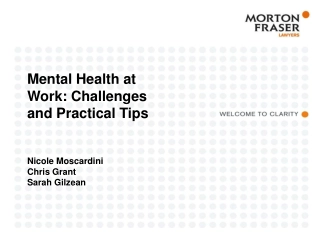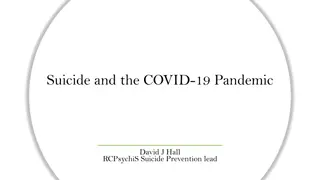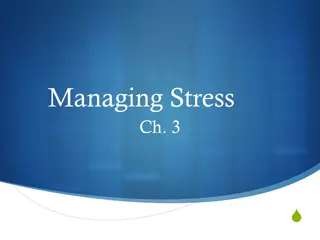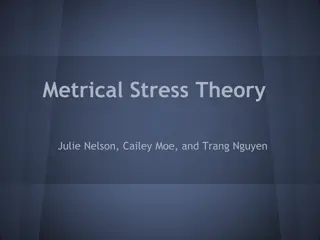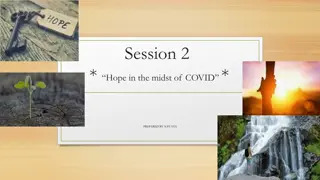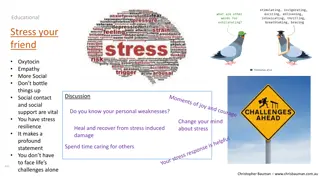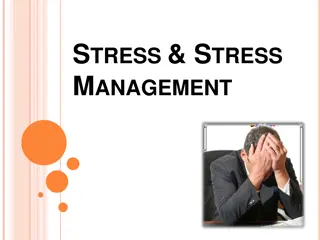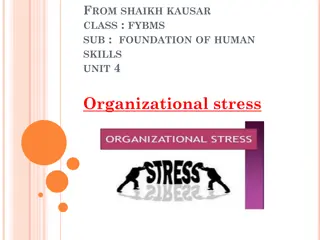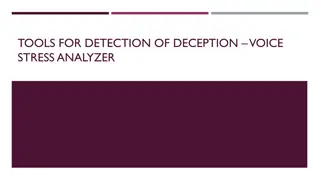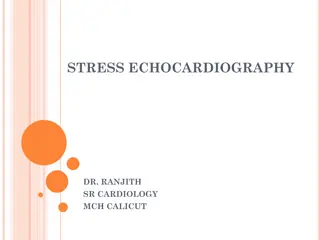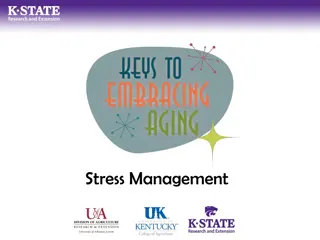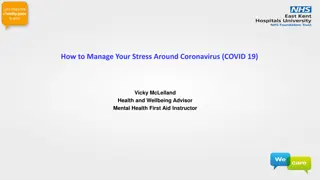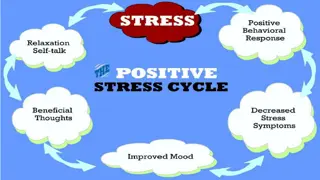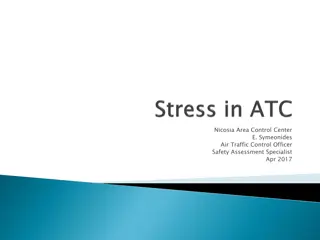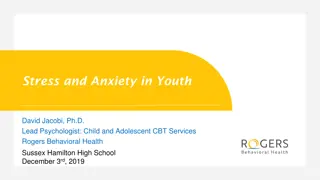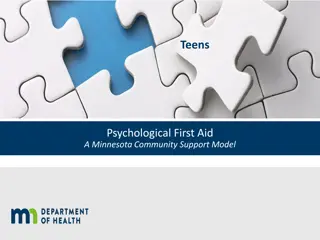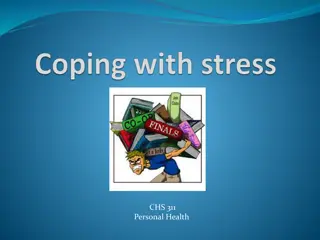Navigating Stress and Challenges During the Pandemic
People are facing prolonged stress with the resurgence of cases. Various individuals share their struggles, from essential workers to parents and caregivers. Research indicates increased rates of mental health issues. Coping strategies include maintaining social connections, focusing on what's controllable, and practicing self-care activities like exercise and mindfulness.
Download Presentation

Please find below an Image/Link to download the presentation.
The content on the website is provided AS IS for your information and personal use only. It may not be sold, licensed, or shared on other websites without obtaining consent from the author.If you encounter any issues during the download, it is possible that the publisher has removed the file from their server.
You are allowed to download the files provided on this website for personal or commercial use, subject to the condition that they are used lawfully. All files are the property of their respective owners.
The content on the website is provided AS IS for your information and personal use only. It may not be sold, licensed, or shared on other websites without obtaining consent from the author.
E N D
Presentation Transcript
Stress Debrief : Riding the Second Wave
Where are we now? People have been faced with highlevels of stress for a prolonged time After the initial crisis, we adjusted to some extent to our new normal Resurgence of cases may cause us to re-experience emotions and trauma related to first wave Our usual coping mechanisms have been interrupted and there are additional stressors and challenges Many are feeling tired, frustrated and burned out and are struggling to regroup Though there is promise of a vaccine, the future/endpoint is still relatively uncertain
What people are saying Living alone: "I was managing ok in the beginning of this but after 8 months, I miss the connection with my work family." Essential worker: "I find myself wishing I had a job that enabled me to work from home; I m afraid that I am putting my spouse and children at risk." Parent of school-aged kids: I worry that I take my stress out on my kids.. It's so hard balancing the help they need with my work responsibilities. Senior: "My grandkids haven't been able to visit since last Christmas." Employee with elderly parent in skilled nursing facility: "My mom has dementia and doesn't understand why I can't visit. She has declined so much these last few weeks." Healthcare worker: "I find myself feeling angry. People complain about wearing a mask and do not seem to realize the risk I place myself in daily."
What the research is showing Increased rates of depression, anxiety, substance use disorders and trauma-related symptoms Interpersonal/domestic violence has increased by 20% Groups who have been most impacted include: Adolescents/Young Adults (ages 13-23) Racial/Ethnic Minorities Essential Workers Unpaid Adult Caregivers Individuals with history of mental health issues Sources: APA Stress in America 2020: A National Mental Health Crisis, CDC.gov, Considerations of the Impacts of COVID-19 on Domestic Violence in the United States Bright, Burton, Kosky October 2020
What is helping you to cope? You can t stop the waves, but you can learn to surf. Joseph Goldstein
What you can do Maintain social connections Take it one day, one moment at a time Focus on what you can control Rest, Nutrition, Exercise BREATHE (Mindfulness/Relaxation) Humor Creative outlets Prayer/spiritual practices Volunteer Others?
What can we learn? It can be helpful to consider the personal growth that can result from this crisis such as a reassessment of what is important and an opportunity to be more appreciative of others.
UCONN EAP Contact Information Call 860-679-2877 or 800-852-4392 Email: uchc_eap@uchc.edu Website: h.uconn.edu/eap Hours: 8:00am 5:00pm After business hours, if the situation is urgent, call the main number and follow the instructions. You will be connected to the on-call EAP counselor.


